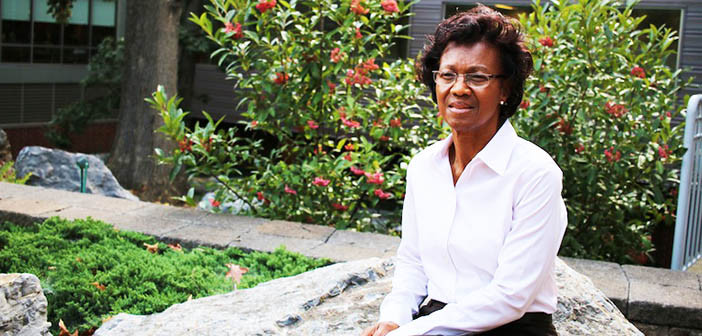By Jeff Keeling
“Katrina was the queen. She was the icing on the cake. When I went through Betsy (1965) I thought that was bad. And when I went through Camille (1969) I thought that was bad. But when I went through Katrina she left a lasting effect. Either you get to know your God, learn to know him, learn to get on a vertical relationship with Him and not a horizontal relationship, or you don’t – got my drift?” – Gilda McKinney
When native New Orleanian Gilda McKinney moved from the Tri-Cities back to New Orleans in July 2004 to care for an aging uncle, she thought she just might spend the rest of her life there. Barely more than a year later, those thoughts were eradicated in the destruction wrought by Hurricane Katrina.
“I really thought Katrina was just going to bypass,” McKinney says of the storm that killed more than 1,800 people, and from which New Orleans has yet to fully recover. “I didn’t really think it was going to turn out to be anything like this.”
McKinney, who works at Franklin Woods Community Hospital, says she “kissed the ground” when she returned to Northeast Tennessee several months after Katrina devastated New Orleans 10 years ago last week. “I was happy to see, as the folks say, them there hills.”
McKinney lived in New Orleans until her early 20s, but had raised a family and worked 25 years for Eastman Chemical Co. when she returned to help care for her maternal uncle, the Rev. Risley Claire. She found a job, rented a townhouse in a gated community in the city’s Jefferson Parish, and visited her uncle every day. “I always took him Hershey bars, because he loved those,” she remembers.
As a young man, Claire had moved to New Orleans from Paincourtville, a bayou village, following a sister – not McKinney’s mother – who had taken a teaching job there. McKinney’s mother also followed her sister to the city, and so McKinney, then Gilda Wallace, was raised in the city’s uptown section. She was from a family of ministers, and much of her life was centered around Beulah Baptist Church on Claiborne Avenue.
Family remained when McKinney returned in 2004, with other cousins helping care for Risley Claire, so after his death, she stayed on. She had a nice home, a good job and was settling back into her native city.
Then came Sunday, Aug. 28, 2005. Evacuation orders had been issued, and McKinney’s cousin Horace, a city employee, told her to drive and meet him at the city’s old municipal auditorium in downtown New Orleans. He was staying there with some of his employees who had nowhere else to go.
“Katrina came in that Monday morning,” McKinney says. “I’ll never forget – I was talking to Karen (Karen White, a friend in Johnson City). She called me between 6 and 6:30 and Katrina sounded like a railroad train. It was loud, and she shook that whole entire building.”
McKinney stayed at the auditorium for several days. When she had walked in, the sun was shining. “When I came out, I had water up above my knees, and my car was completely demolished by the water.”
The scenes she saw riding in her cousin’s pickup from the auditorium to his house in the Carrollton Station neighborhood were enough to make her want to leave, even though his home was largely undamaged.
“The French Quarter was dry, not an ounce of water. Everything was open like nothing ever hit. That was unbelievable. Go a couple of blocks down, you’ve got water up above your knees. I don’t know how to explain that, but that’s the way it was.
“We drove downtown to Canal Street, there were people looting, people in boats. I don’t know where they were going because there was nowhere to go. We drove down Magazine Street, people were looting, taking things out of stores – it was amazing.”
McKinney went to Natchitoches, La. for awhile, then returned to her townhouse after about three months. The scene as she came into the city was not inviting.
“When I came back across that interstate from Shreveport to New Orleans, it was something like a Twilight Zone. Furniture was sitting on the interstate, washing machines and sofas, and I thought, ‘what is this?’”
Whatever it was, it was too much for McKinney, especially after she returned to her home to find further devastation. She moved back to Johnson City, found a good job and resumed the life she’d known for several decades – with the exception of her brief but memorable return to her hometown.
McKinney returned for a visit last year, and said things are improving, though the population hasn’t rebounded to its pre-Katrina levels. “The Ninth Ward (a poor section of the city that was particularly hard hit) has really come back. They’ve built it up, put in new homes.
“I don’t know if the city will ever be like it was when I was a kid growing up or like it was when I was there in 2005. A lot has changed.”




